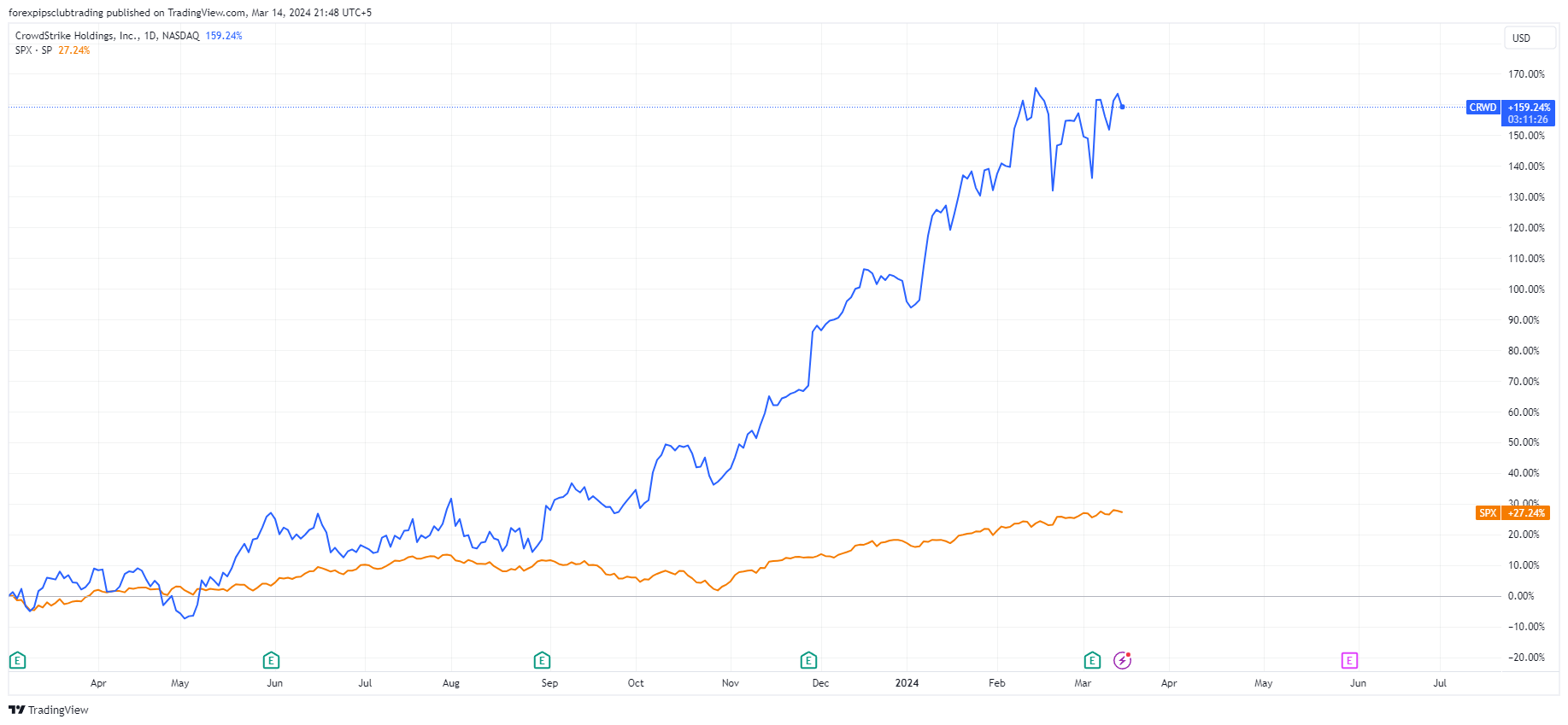Jensen Huang (Nvidia) On US Export Controls: A Failure, Trump's Success

Table of Contents
Jensen Huang's Stance on Export Controls
Nvidia's CEO, Jensen Huang, hasn't shied away from expressing his concerns regarding US export controls. His public statements, interviews, and internal communications reveal a deep skepticism towards their effectiveness. He argues that these controls, while intended to protect national security interests, often result in unintended consequences that harm innovation and global competitiveness.
-
Specific Criticisms: Huang's arguments center on the belief that overly restrictive export controls stifle technological advancement by hindering collaboration and the free flow of information crucial for development. He contends that they create unnecessary barriers to entry for smaller companies and slow down the overall pace of innovation.
-
Impact on Innovation: Huang has repeatedly highlighted the chilling effect of export controls on research and development, especially in the rapidly evolving fields of artificial intelligence (AI) and high-performance computing. The uncertainty surrounding regulations, he argues, discourages investment and risks driving talent and innovation overseas.
-
Balancing Act: A key aspect of Huang's perspective is his emphasis on the delicate balance between safeguarding national security and fostering a globally competitive technological landscape. He believes a more nuanced approach is needed, one that distinguishes between legitimate security threats and the broader benefits of international technological cooperation.
-
Challenges for Nvidia: Nvidia, a company with significant operations and market share in China, has directly experienced the challenges imposed by export controls. Restrictions on the sale of high-performance GPUs to certain entities in China have undeniably impacted Nvidia's revenue and strategic plans, forcing the company to adapt its business strategy and navigate complex regulatory landscapes.
The Trump Administration's Approach to Export Controls
The Trump administration adopted a significantly more aggressive approach to technology exports, particularly targeting China. This policy shift was largely driven by concerns about China's technological ambitions and the perceived threat to US national security.
-
Key Features of Trump's Policy: The Trump administration implemented a series of measures, including the Entity List, which blacklisted companies deemed to be involved in activities detrimental to US national security interests. This resulted in significant restrictions on the export of advanced semiconductors and related technologies.
-
Rationale and National Security: The underlying rationale was to prevent the transfer of sensitive technologies to adversaries, hindering their ability to develop military capabilities and erode US technological dominance. This approach was framed within a broader strategy of strategic competition with China.
-
Impact on Semiconductor Industry: While some argued that the Trump administration's policies protected US technological leadership, others criticized them for disrupting global supply chains, increasing costs, and potentially slowing innovation. The impact on the semiconductor industry was a mixed bag, with some companies benefiting from increased domestic demand and others struggling with disruptions and reduced access to key markets.
-
Specific Examples: The most significant examples include the restrictions placed on Huawei's access to US-made chips and the tightening of regulations on the export of advanced chipmaking equipment to China. These actions had far-reaching consequences throughout the global semiconductor ecosystem.
Comparing Huang's Perspective with Trump's Policies
A direct comparison reveals a fundamental disagreement between Huang's perspective and the Trump administration's approach to export controls. While the Trump administration prioritized national security, often at the expense of economic considerations, Huang advocates for a more balanced approach that prioritizes both.
-
Contrasting Views: Huang's criticisms suggest that the Trump administration's blanket approach was overly broad and ineffective in achieving its stated goals. He argues that a more targeted approach, focused on specific threats, would be more effective and less disruptive to the global economy.
-
Corporate Interests vs. National Security: While some might argue that Huang's perspective is simply a reflection of Nvidia's corporate interests, his arguments raise valid points about the unintended consequences of overly restrictive export controls. The long-term implications of stifling innovation and disrupting supply chains are far-reaching and impact far more than just individual companies.
-
Unintended Consequences: Both approaches – the Trump administration's restrictive policies and Huang's proposed alternative – carry the risk of unintended consequences. Overly restrictive policies can drive innovation offshore, while a less restrictive approach may pose national security risks. Finding the optimal balance is a critical challenge.
The Impact on Nvidia's Business
US export controls have had a direct and measurable impact on Nvidia's business. The restrictions on sales to China, a significant market for Nvidia's high-performance computing products, have affected revenue and forced strategic adjustments.
-
Financial Impact: The inability to freely sell advanced GPUs to certain Chinese entities has undoubtedly impacted Nvidia's revenue streams, though the company has adapted its strategies to mitigate these losses.
-
Strategic Adaptations: Nvidia has responded by focusing on other markets, diversifying its product offerings, and investing in research and development to maintain its competitive edge.
-
Supply Chain Disruptions: While not as direct as the sales restrictions, the uncertainty surrounding export controls has introduced complications into Nvidia's supply chain, requiring careful management of international partnerships and logistics.
Conclusion
Jensen Huang's critique of US export controls presents a compelling counterpoint to the Trump administration's aggressive approach. While national security concerns remain paramount, Huang's arguments highlight the crucial need to balance these concerns with the long-term benefits of global technological cooperation and innovation. The ongoing debate underscores the complexity of navigating the intersection of national security, economic competitiveness, and the future of the semiconductor industry. Learn more about the ongoing debate surrounding Jensen Huang's views on US export controls and their long-term implications for the future of the semiconductor industry.

Featured Posts
-
 Theatre Tivoli Clisson Visite Interieure Et Presentation Loto Du Patrimoine 2025
May 22, 2025
Theatre Tivoli Clisson Visite Interieure Et Presentation Loto Du Patrimoine 2025
May 22, 2025 -
 Cartoon Network And Looney Tunes Unite In New 2025 Animated Short
May 22, 2025
Cartoon Network And Looney Tunes Unite In New 2025 Animated Short
May 22, 2025 -
 Abn Amro Under Investigation Bonus Practices Scrutinized
May 22, 2025
Abn Amro Under Investigation Bonus Practices Scrutinized
May 22, 2025 -
 Wtt Introduces Groundbreaking Competitive Model At Press Conference
May 22, 2025
Wtt Introduces Groundbreaking Competitive Model At Press Conference
May 22, 2025 -
 Klopps Coaching Legacy How Hout Bay Fc Benefits From Ex Liverpool Managers Fame
May 22, 2025
Klopps Coaching Legacy How Hout Bay Fc Benefits From Ex Liverpool Managers Fame
May 22, 2025
Latest Posts
-
 What Caused Core Weave Inc Crwv Stock To Fall On Thursday
May 22, 2025
What Caused Core Weave Inc Crwv Stock To Fall On Thursday
May 22, 2025 -
 Understanding The Reasons Behind Core Weaves Crwv Thursday Stock Decrease
May 22, 2025
Understanding The Reasons Behind Core Weaves Crwv Thursday Stock Decrease
May 22, 2025 -
 Core Weave Crwv Stock Performance Thursdays Market Reaction
May 22, 2025
Core Weave Crwv Stock Performance Thursdays Market Reaction
May 22, 2025 -
 Analyzing Core Weave Inc Crwv Stocks Thursday Dip
May 22, 2025
Analyzing Core Weave Inc Crwv Stocks Thursday Dip
May 22, 2025 -
 Thursdays Core Weave Crwv Stock Decline A Detailed Explanation
May 22, 2025
Thursdays Core Weave Crwv Stock Decline A Detailed Explanation
May 22, 2025
